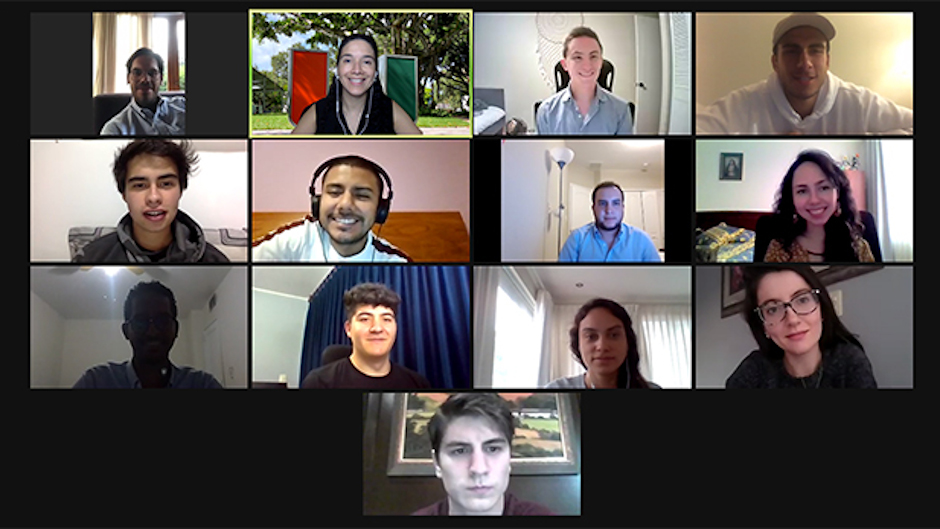As an increasing number of firms trade and invest abroad, attorneys and business owners alike must contend with international law and legal regimes governing everything from commercial contracts to disputes. That is what inspired Miami Law Lecturer in Law Paula Arias to create a unique international sales course, which prepares future lawyers to effectively represent clients in their dealings overseas.
An advocate of experiential learning, Arias recently teamed up with Professor James Keeble, who teaches international business transactions at the business school of Ecuador’s Universidad San Francisco de Quito, to put students directly in the role of legal and business professionals in an international transaction.
The immersive exercise concerned a sale of tuna fish from Ecuador to Italy, with students from both schools grouped into either the seller’s or buyer’s counsel. As in real life, the transaction was governed by the United Nations Convention on Contracts for the Sale of International Goods, one of the core multilateral treaties on international trade.
“The class was very practical, as we had several guest speakers and lawyers who shared with us their daily experiences with international sales,” said Miami Law international student Ibrahim Amir. “But the most interesting part of the class was the negotiation exercise where we were paired with students from Ecuador who are studying business. This exercise was a true reflection of the real world as it showed us how negotiations are conducted between the business and legal departments in international corporations. Overall, the class was one of the best experiences I had during my time at Miami Law.”
Across the two classes, students put their knowledge into practice as they negotiated the commercial and legal terms of the transaction based on instructions provided to each side. The exercise helped students sharpen their ability to negotiate and draft a contract, learn to collaborate with colleagues, and build confidence through practice.
“The exercise exceeded all expectation: the diversity of the participants, their jurisdictions, and professional backgrounds allowed it to come as close as possible to reality,” said Keeble. “The students were able to learn more about commercial and legal issues in other countries and establish friendships with their peers in Ecuador and Miami. Technology has allowed us to get closer and work in real-time: The University of Miami in the United States and Universidad San Francisco de Quito in Ecuador.”
Due to the pandemic, Miami Law, like most schools worldwide, was forced to move much of its coursework to a virtual format. Arias and Keebler were determined to make the most of the situation by using existing digital platforms to connect their students across continents. The exercise allowed participants to interact with peers from different professional and cultural backgrounds, as in actual international sales transaction.
“Thank you again for giving us this opportunity to improve our skills and getting to know a little piece of other cultures,” said USFQ student Priscila Jijón in a message to Arias. “It was a great pleasure for my team and me to work with you and your students. I am looking forward to seeing you again in another opportunity that life give us.”
Arias, who practices law both in her native Colombia and the United States, is also director of the International Moot Court Program which also promotes cross-cultural understanding and exposure to different legal systems through competitions all over the world.
Read about Miami Law’s international law program
Read about the International Moot Court Program

